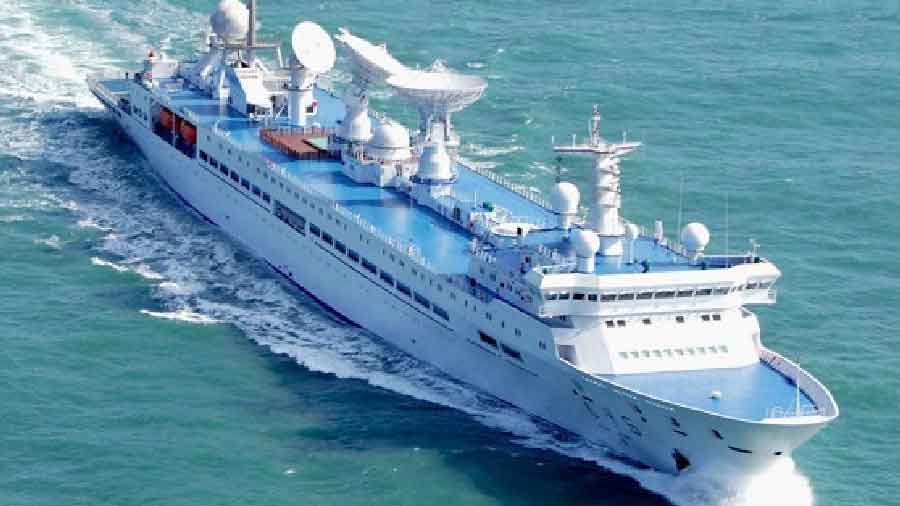
The archipelago nation of Maldives is not only strategically positioned geographically, but is also a vital political partner for countries competing in the Indian Ocean region. Given its important strategic location, Maldives has for long been playing the balancing game, especially between the two Asian giants, India and China.
The political tilt towards either of the two giants is however determined by the political ideology that sits in power in Male. At present with Mohammad Muizzu’s party at the helm, the shift is more prominently towards Beijing, quite evidently.
Apart from the President of Maldives visit to Beijing, a set of other prominent factors have strongly indicated a significant shift in the country’s policy from its predecessors. Among these factors however, the one that seems to stand out most is the statement by the Foreign Affairs Ministry of Maldives that confirmed the Chinese research vessel or more commonly understood to be a ‘spy’ ship, the Xiang Yang Hong 3’s docking in Male.
This decision by the Maldivian government however, as underscored by many analysts, came after Beijing’s announcement of elevating its partnership with the island country to being strategically cooperative in nature along with the extension of USD 130 million in grants and double the more in loans.
The fact that international organisations were quick to realise the debt burden Maldives was beginning to undertake and declare the island country as a risky investment avenue, goes on to showcase the depth of the economic turbulence Maldives will most likely face due to its re-orientation towards Beijing.
Furthermore, as stated by a prominent think-tank, the surge of China’s scientific research ships in the South Asian region is majorly tasked to collect data from the oceans for military purposes including submarine operations.
A noteworthy global concern was also levied in 2022 when Sri Lanka ultimately ended up banning the docking of a similar Chinese vessel the Yuan Wang 5, a military vessel capable of tracking rocket and missile launches that was also conducting ‘research’ on Indian defence facilities as well as mapping the Indian Ocean floor for military purposes.
Interestingly, the Xiang Yang Hong 03, which recently docked in Male, is owned by a research institute that reports to China’s natural resources ministry and has spent over three weeks surveying waters outside the exclusive economic zones of India, the Maldives and Sri Lanka.
- The brains behind Matavire’s immortalisation
- Red Cross work remembered
- All set for inaugural job fair
- Community trailblazers: Dr Guramatunhu: A hard-driving achiever yearning for better Zim
Keep Reading
It is however yet to see if Maldives still continues to live up to its decades-old stand of preventing Chinese vessels in conducting ‘research’ in waters that is in close proximity to Indian shores, however it should not come as a surprise should Male facilitate such actions given the growing influence Beijing is exerting upon the country.
In such a situation, New Delhi must prepare to safeguard its military and civilian installations from Beijing’s attempts at espionage facilitated by Male. China’s navy would be keen to leverage the insights gained from the information gathered by the spy ships to seek an upper hand for its own military activities.
Beijing’s increase in such seabed surveys and marine data collections is in the larger sense only meant to advance its own strategic goals. Apart from deploying the Yuan Wang and the Xiang Yang Hong, China has a set of other vessels that perform surveillance and reconnaissance tasks for the country’s navy including the Shi Yan class of vessels that are mostly deployed in the Indian Oceans region.
These vessels are a crucial component of advancing the People’ Liberation Army’s (Navy) anti-submarine tactics in a region where the country seeks to grow its dominance. Such attempts have also led to speculations of China seeking to develop a naval base in Maldives, aiming to further its influence upon the island country to the extent of gaining a military base in return for political support and infrastructure projects.
However, this would not be Beijing’s first attempt at furthering its ambitions of constructing a military base in Maldives, in 2018, China presented a plan to set up an ocean observatory in North Male, very close to the Indian islands of Lakshadweep. Much to the credit of opposition leaders, the plan did not gain much support given the serious implications of providing China with a submarine base in the country.
Such proposition even if in the past, have greater political support ever since Muizzu’s party came into power. From New Delhi’s perspective, the geopolitical threat that an erstwhile ally poses, is perhaps greater than ever. From Maldives perspective, it must realise that such advances from Beijing include a hefty invisible cost that it will have to pay in the times to come.
Moreover, an important element that the government in Male would do well to learn from, is the experiences of other South Asian countries. From Nepal to Pakistan, each country that has sought to grow friendlier relations with Beijing has ultimately faced economic as well as domestic political turmoil.
Hence the causal effect of China’s growing cordial relationships is evidently proportional to the downfall of the political party in power, thus a course correction in the right time for Maldives’ political leaders would do them well instead of choosing to side by Beijing’s self-interested objectives.







